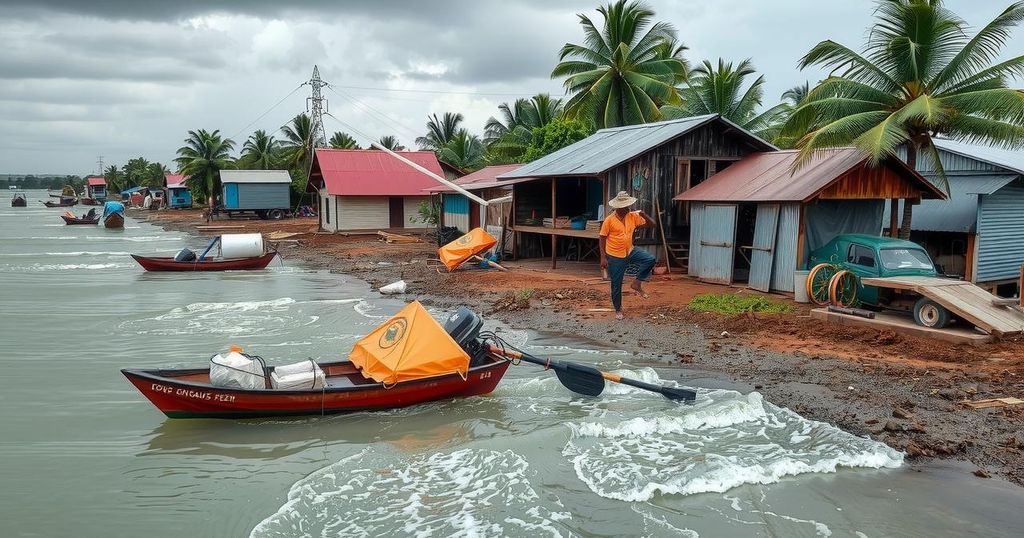IOM Issues Flash Appeal Following Cyclone Chido’s Impact in Northern Mozambique
Tropical Cyclone Chido made landfall in northern Mozambique on December 15, 2024, affecting nearly 380,000 people across Cabo Delgado, Nampula, and Niassa. With over 88,000 homes damaged or destroyed, urgent needs such as shelter, food, and WASH supplies have arisen. IOM seeks USD 12.16 million to assist 240,000 individuals, coordinating with humanitarian agencies amid ongoing vulnerabilities due to conflict and food insecurity.
Tropical Cyclone Chido struck northern Mozambique on December 15, 2024, severely affecting the provinces of Cabo Delgado, Nampula, and Niassa. The cyclone unleashed phenomenal rainfall of 250 mm in just 24 hours, with winds reaching speeds up to 260 km/h. The National Institute for Natural Disaster (INGD) reports that approximately 380,000 individuals, amounting to 76,100 households, have been impacted by this disaster, with over 88,670 homes destroyed either partially or entirely.
In light of these challenges, immediate assistance is paramount, with essential needs identified as shelter, non-food items (NFIs), water, sanitation and hygiene (WASH) kits, and food. The ongoing conflict in Cabo Delgado since 2017 has exacerbated the situation, leading to increased vulnerabilities among displaced populations. Compounding this crisis, the onset of the rainy season brings additional risks of flooding, persisting until April 2025.
Given these circumstances, the International Organization for Migration (IOM) is collaborating with INGD, OCHA, and other agencies to respond effectively to the urgent needs of affected populations. IOM is seeking to mobilize USD 12.16 million over the next six months to assist 240,000 individuals across Cabo Delgado, Nampula, and Niassa, coordinating efforts with relevant humanitarian clusters as part of the interagency Flash Appeal for Cyclone Chido.
The landfall of Tropical Cyclone Chido has raised immediate humanitarian concerns in northern Mozambique, where the compounded impacts of natural disasters and ongoing conflicts place significant strain on resources and infrastructure. Cyclone Chido’s severe weather conditions have led to considerable displacement and loss of property within regions already grappling with pre-existing vulnerabilities due to conflict and acute food insecurity, as indicated by reports of IPC 4 in certain locations. These multifaceted challenges necessitate a coordinated humanitarian response that addresses both immediate needs and long-term recovery efforts.
In conclusion, the response to the devastation caused by Tropical Cyclone Chido in northern Mozambique is crucial to support the recovery of affected populations. The IOM’s appeal for funding underscores the urgent need for humanitarian assistance to provide shelter, food, and essential services to those impacted. Given the compounded vulnerabilities from both the cyclone and ongoing conflict, a concerted effort from multiple agencies will be essential in facilitating a sustainable recovery for the affected communities.
Original Source: reliefweb.int




Post Comment